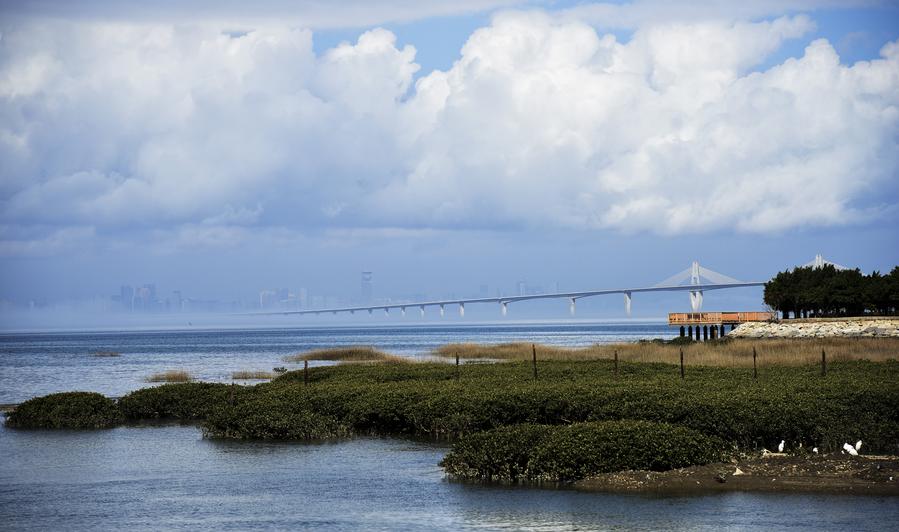Stopping cross-Strait exchanges will not be barrier to reunification
By WU YIXUE | China Daily | Updated: 2024-09-24 07:37

A group of 13 people from Xiamen in Fujian arrived at Kinmen island on Wednesday to explore ways to resume tourist arrivals from the Chinese mainland, something that has been interrupted for five years now.
The trip was in response to the expectations of the people and tourism sector on Taiwan island that cross-Strait tourism exchanges and cooperation would be resumed. It is reported that the first mainland tour group has applied for tourism to Kinmen, and if all goes well, the place can expect 400,000 to 450,000 mainland tourists annually, which will be a big boost to the island's tourism and economic development.
Since coming to power in 2016, the Democratic Progressive Party in Taiwan has refused to recognize the 1992 Consensus, resulting in a sharp decline in the number of tourists from the mainland, seriously affecting Taiwan's tourism industry. The DPP authorities have tried to increase the number of tourists from Southeast Asian countries, but their spending power is no match for that of tourists from the mainland.
At the beginning of 2020, under the pretext of the COVID-19 pandemic, the DPP authorities adopted a series of restrictive measures, unilaterally banning mainland residents from going to Taiwan while also suspending the island's travel agencies from operating group tours to the mainland. In November last year, the DPP authorities promised to lift the "ban on tour groups" in March this year, only to go back on their word in February, asking travel agencies not to allow tours from June 1. People from all walks of life in Taiwan have criticized the DPP authorities for creating artificial barriers to cross-Strait exchanges in disregard of the interests and welfare of tourists and ordinary people.
Facts show that the DPP authorities, for political motives, have ignored the legitimate rights and interests of the people in Taiwan and its tourism industry, and have constantly engaged in political manipulation, which poses a real obstacle to the resumption of cross-Strait tourism. Political factors should not become an excuse for the DPP authorities to stop normal tourism and exchanges between people on both sides of the Strait. The DPP authorities in Taiwan should face up to the legitimate rights and interests of the Taiwan people and the interests of its tourism sector, and lift the unreasonable ban on cross-Strait tourism.
Despite the complex and grim situation in the Taiwan Strait, cross-Strait exchanges and cooperation in various fields have continued all these years. This proves that no force can change the desire of compatriots on both sides of the Strait to move closer to each other and stop the development of cross-Strait relations. It remains an irreversible trend to maintain and expand personnel exchanges and cooperation between the two sides of the Taiwan Strait, promote the development of cross-Strait relations, and finally advance the process of national reunification.
























